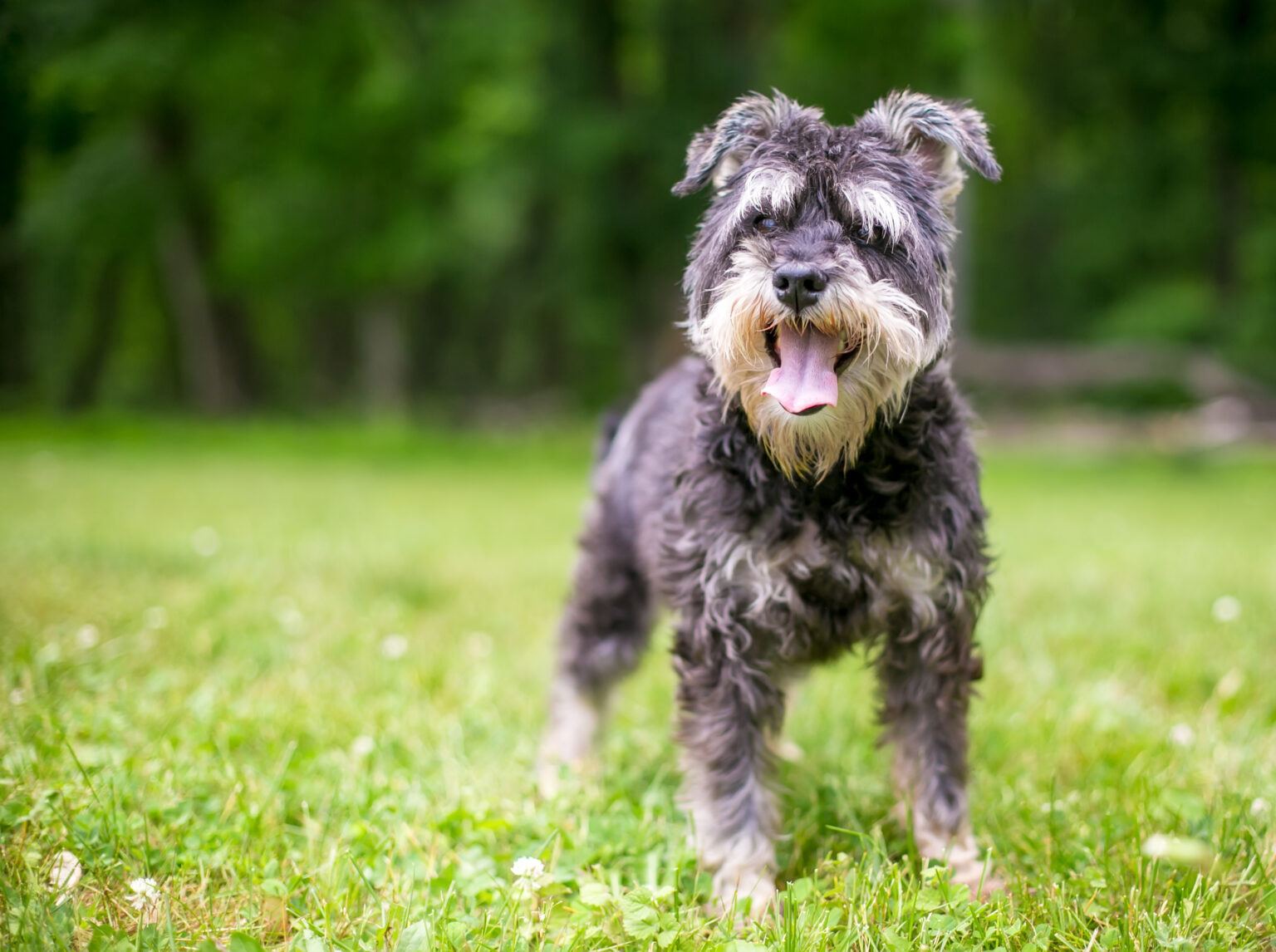Miniature Schnauzer Dog Breed
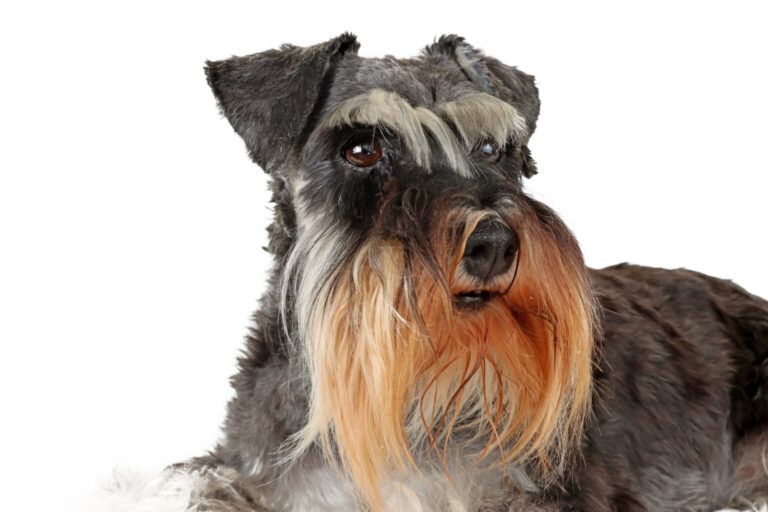
| Aspect | Details |
|---|---|
| Origin | Germany |
| Birth Era | Late 19th century |
| Crossbreed | No, purebred |
| Temperament | Friendly, intelligent, spirited |
| Physique | Small, 11-20 pounds, robust |
| Coat | Hard, wiry, dense coat |
| Lifespan | 12-15 years |
In Japan, the Miniature Schnauzer, originally used as a farm dog in Germany, is now extremely popular as a family pet. Despite its small size, it is muscular, intelligent, and highly capable of learning, making it a fitting companion in Japanese homes. Its loyal and sociable nature is highly valued as a family member in Japan. Its compatibility with children and other pets makes it adaptable to a variety of home environments.
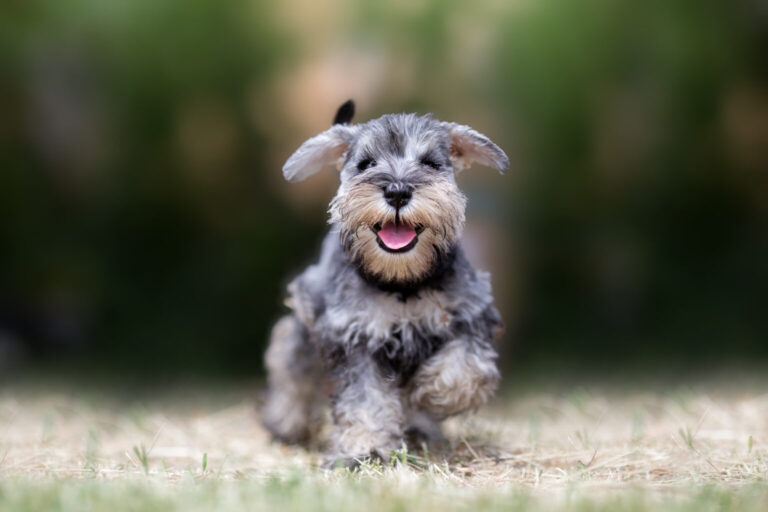
With proper health management and loving care, it can lead a long and happy life in Japanese households. The Miniature Schnauzer is considered an ideal companion dog in Japanese homes.
Coat Color
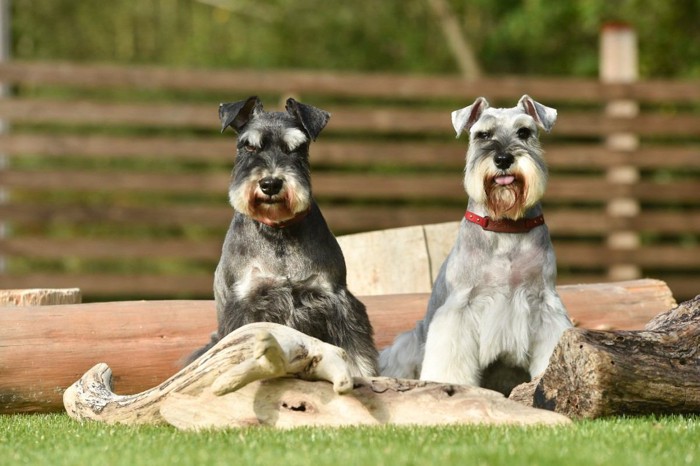
Among Miniature Schnauzer enthusiasts in Japan, the breed’s wide variety of coat colors is a major attraction. Common coat colors include black, silver, salt and pepper (a mix of gray and black), and white. These colors, combined with the breed’s characteristic thick and dense fur, create a unique appearance. The salt and pepper shade, in particular, is an iconic feature of this breed and is frequently seen in Japanese dog shows. The individual coat color variations give each Miniature Schnauzer a unique look.
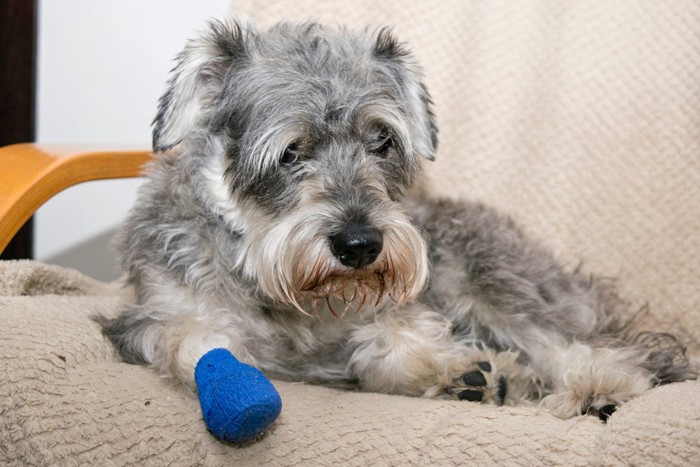
This diversity in coat colors has enhanced the popularity of Miniature Schnauzers in Japan, making it a significant allure among enthusiasts.
Coat Type
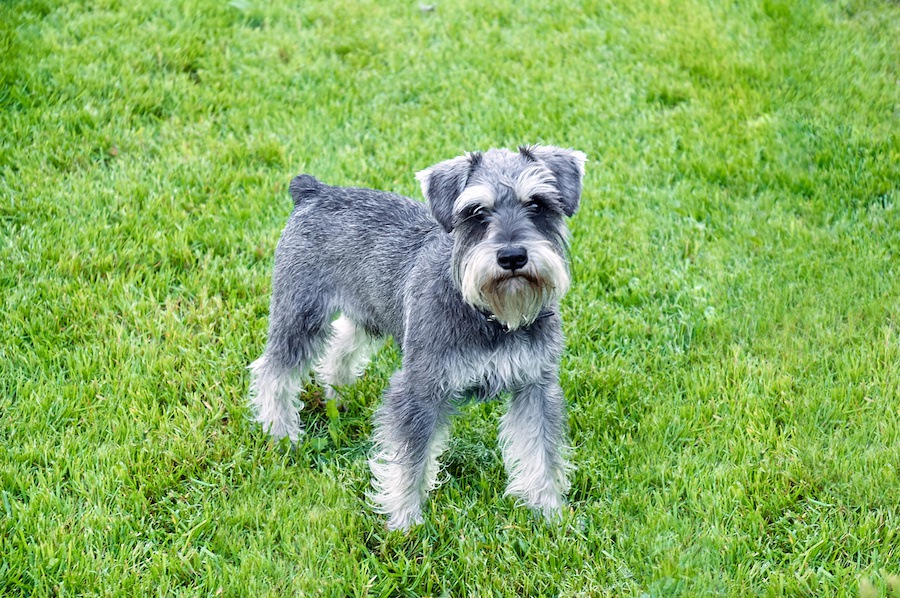
Considering the pet-keeping environment in Japan, the coat characteristics of the Miniature Schnauzer are highly appealing. Its double coat structure, with a hard, coarse outer coat and a soft undercoat, not only helps maintain a stable body temperature throughout the year but also suits Japanese households due to its minimal shedding and lower allergy concerns.
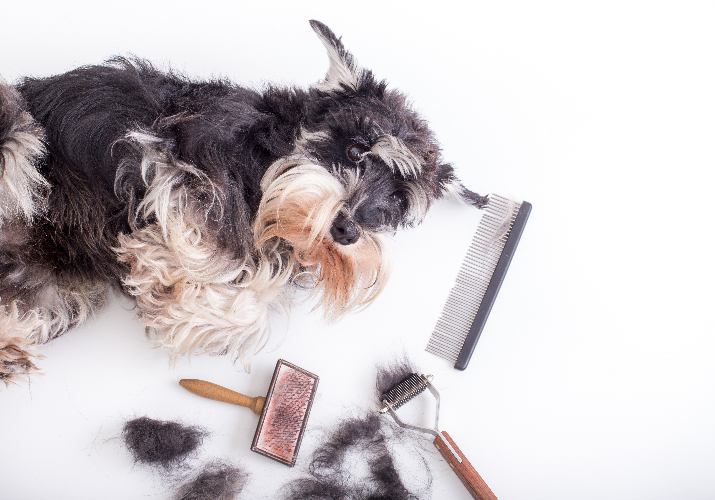
Furthermore, the coat’s resistance to dirt and odors makes it ideal for maintaining a clean indoor environment, allowing for a comfortable life as a pet in many Japanese homes.
Size
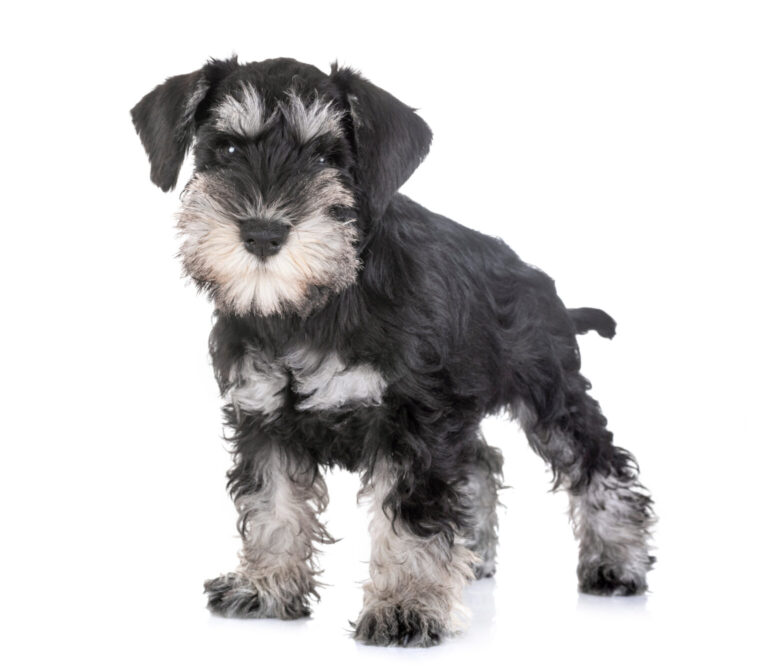
Considering the living environments in Japan, the Miniature Schnauzer is highly favored for its small and compact size. The height of an adult typically ranges from about 11.8 inches to 14.2 inches (30 to 36 cm), characterized by a muscular and well-balanced physique.
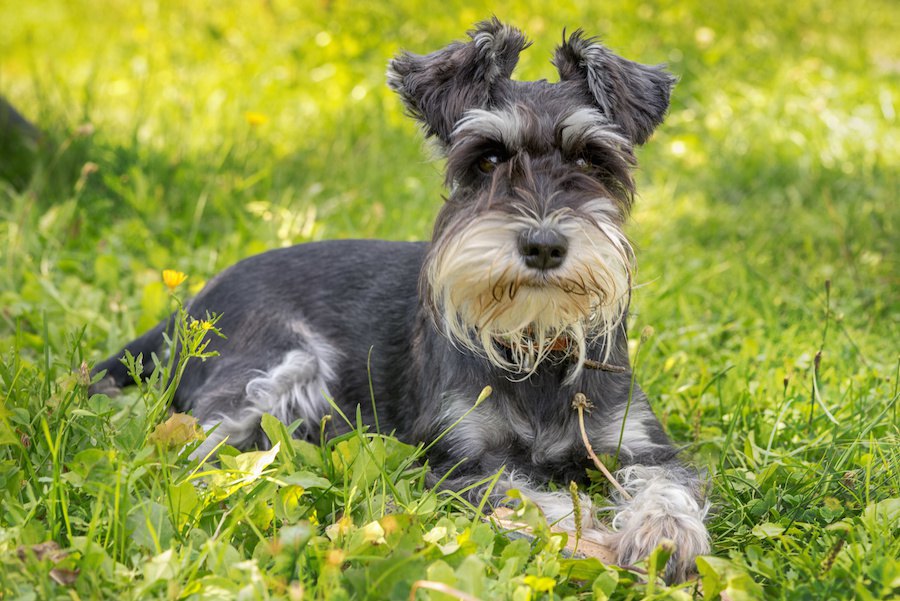
In many Japanese homes, this size is considered ideal for indoor living, allowing for a comfortable coexistence with dogs even in limited spaces such as apartments and small houses.
Weight
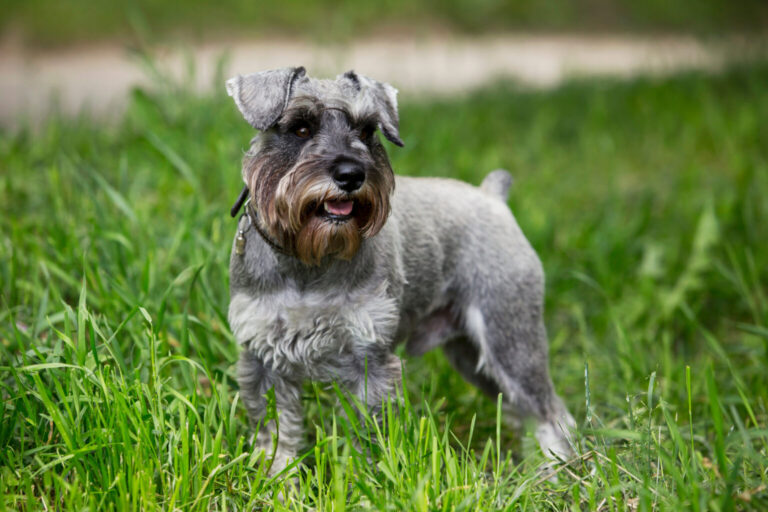
In the context of pet health management in Japan, appropriate weight management for Miniature Schnauzers is highly emphasized. The ideal average weight for an adult is approximately 11.9 to 20 pounds (5.4 to 9.1 kg).
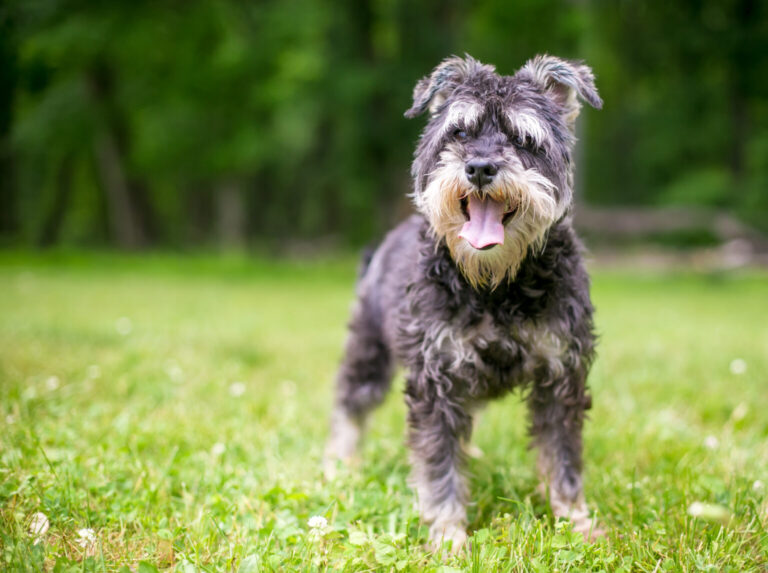
Maintaining health involves a nutritionally balanced diet and regular exercise, which Japanese owners particularly prioritize. In Japan, there is a heightened awareness of these factors to ensure the health and well-being of pets.
Lifespan
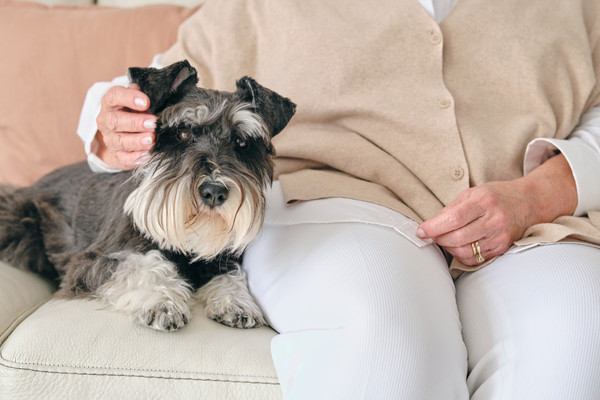
In Japan, Miniature Schnauzers are known for their longevity and rapid growth. Their average lifespan ranges from 12 to 15 years, equivalent to a human’s late 50s to just before 80s. This breed reaches full size in about 8 to 10 months, and in Japan, a dog’s growth is cherished as part of the family, with their milestones celebrated with joy.
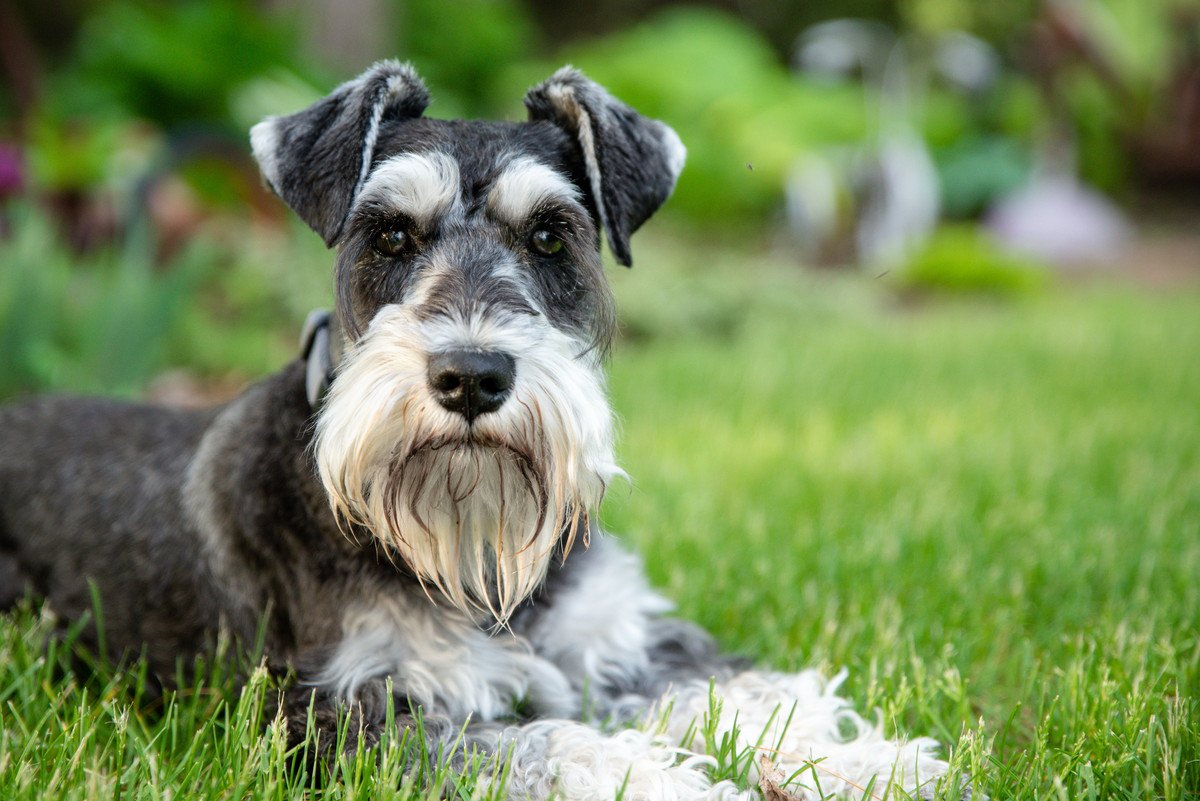
Currently, there is a Miniature Schnauzer that has set a Guinness record at 18 years of age. In the era of the ‘century-long life’ in Japan, it’s becoming less rare to see dogs reaching 20 years of age. Japanese families tend to support their pets’ longevity through healthy diets and regular exercise.
Trainavility
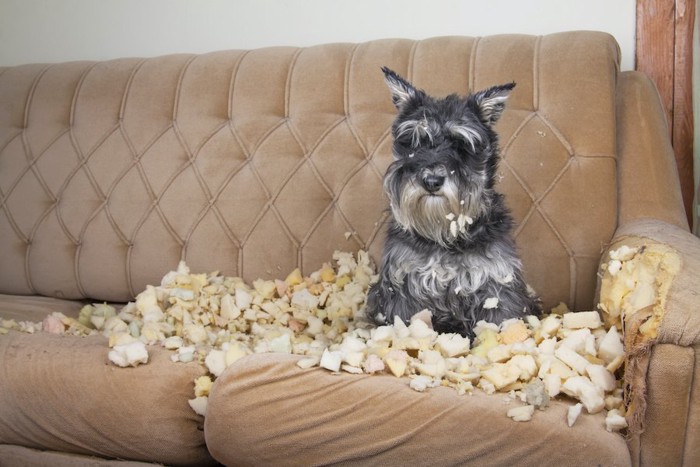
In Japan, the Miniature Schnauzer is highly regarded for its trainability and intelligence. They are known for their strong independence as well as deep loyalty to their owners, making them quick to understand instructions and easy to train. In Japanese pet culture, it’s important to train dogs with consistency and patience, and positive reinforcement and gentle guidance are recommended.
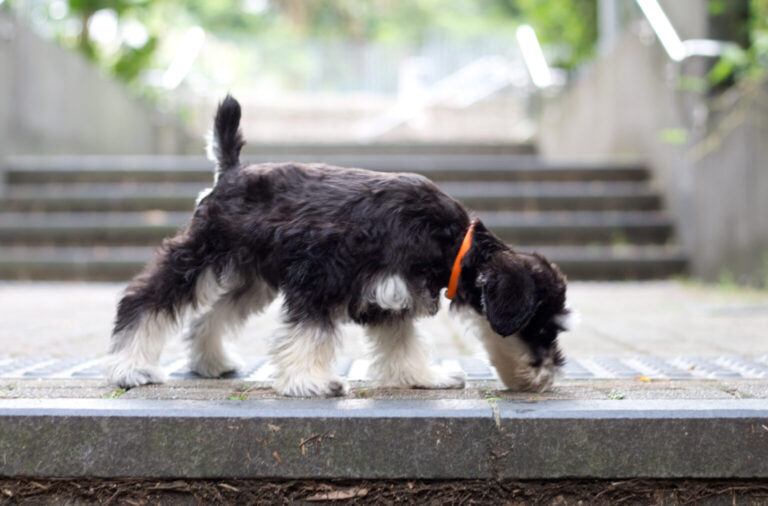
Especially for the Miniature Schnauzer’s active nature, incorporating suitable exercise during training is considered effective for enhanced learning. Such training deepens the bond between the owner and the pet and maximizes the dog’s intellectual potential, a key aspect of pet culture in Japan.
Exercise
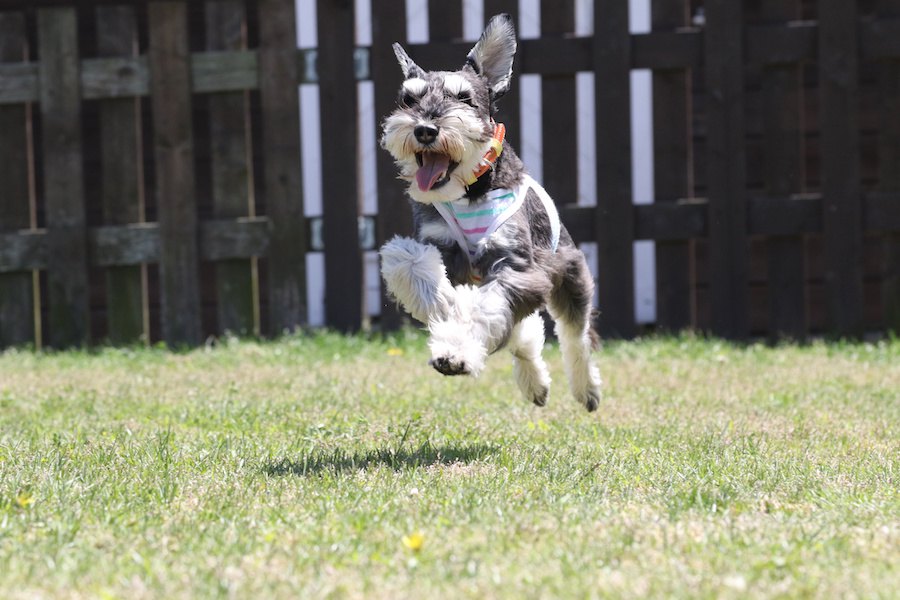
In Japan, the Miniature Schnauzer requires two daily walks, each lasting about 20 to 30 minutes, which roughly translates to a distance of about 1.2 to 1.9 miles. Japanese dog owners prioritize incorporating light daily exercise to maintain their pet’s health. Activities such as tug-of-war and ball throwing are recommended as part of the daily routine, and jogging together also makes for good exercise.
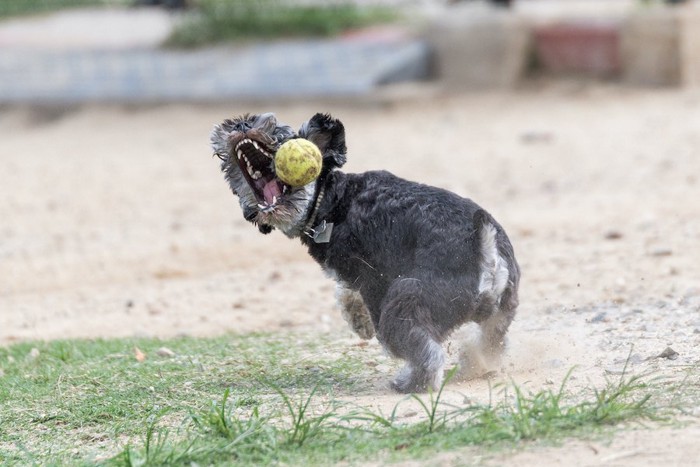
Furthermore, for the active and curious Miniature Schnauzer, regular visits to dog parks are advised. In Japan, there is a culture of encouraging interactions with other dogs and free running at dog parks for pet stress relief.
Feeding
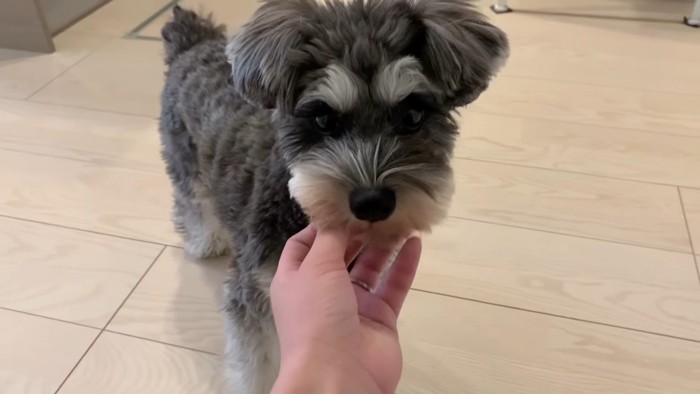
In Japan, proper weight management for breeds like the Miniature Schnauzer, which have a square body type, is particularly crucial. In Japanese culture, the health management of pets is seen as a responsibility of the owner, and careful diet control is necessary for breeds like the Miniature Schnauzer with their hearty appetites. It’s recommended to monitor their weight regularly, as the weight around one year old is often considered the average adult weight for this breed.

Obesity can lead to numerous health issues, so in Japan, when a pet’s weight is on the rise, adjusting their diet and encouraging moderate exercise are common practices.
Temperament

In Japan, the Miniature Schnauzer is renowned for its loyalty and deep affection. These dogs are incredibly affectionate towards their trusted owners and are cherished as family members. In Japanese households, it’s common to incorporate active exercise to strengthen the bond with their pets. Originally bred as working dogs, they enjoy vigorous activities. With their muscular and robust build, regular exercise is essential. In Japan, walking and engaging in activities at dog parks with pets is considered part of a healthy lifestyle for owners as well.
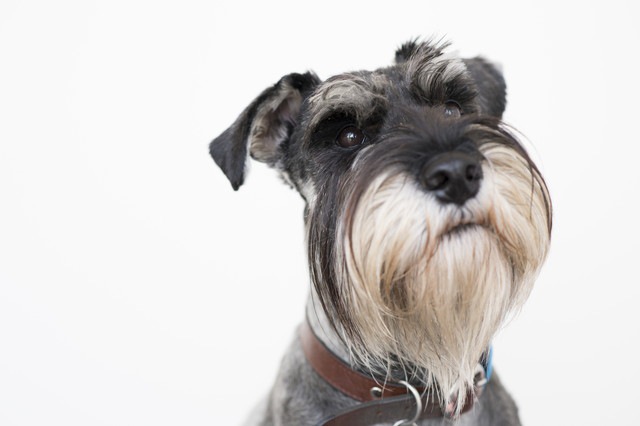
However, despite their curiosity, Miniature Schnauzers can be stubborn and may show wariness towards strangers and other dogs. In Japan, early socialization training is recommended to enhance their sociability with other pets and people.
History
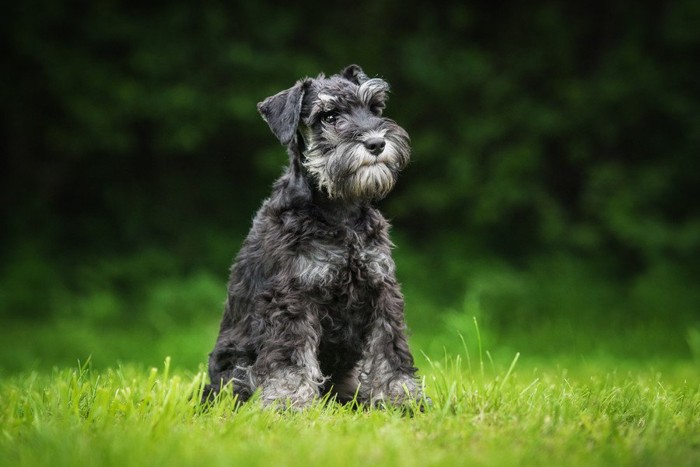
In Japan, the Miniature Schnauzer is known as a breed originating from late 19th-century Germany, and many enthusiasts here are attracted to its historical background and unique characteristics. Originally used for pest control and guarding in farms, their reduced size, lively character, and high adaptability have made them popular in Japanese households.
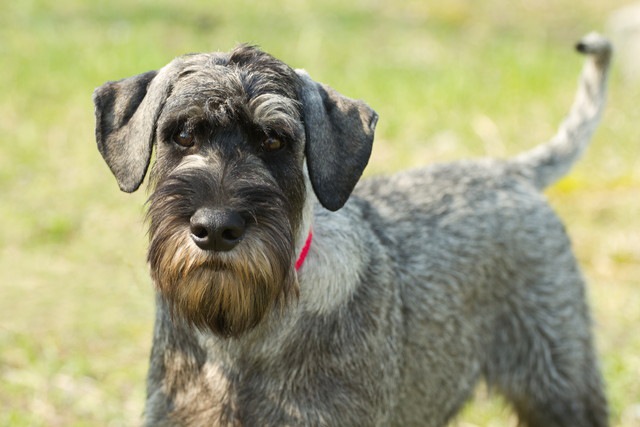
After being introduced to the United States in the 1920s post-World War I, they gained attention as companion dogs, and in Japan, they are cherished as loyal companions that closely bond with families. The history of this breed reflects its versatility and charm in the context of Japanese pet culture.
Grooming
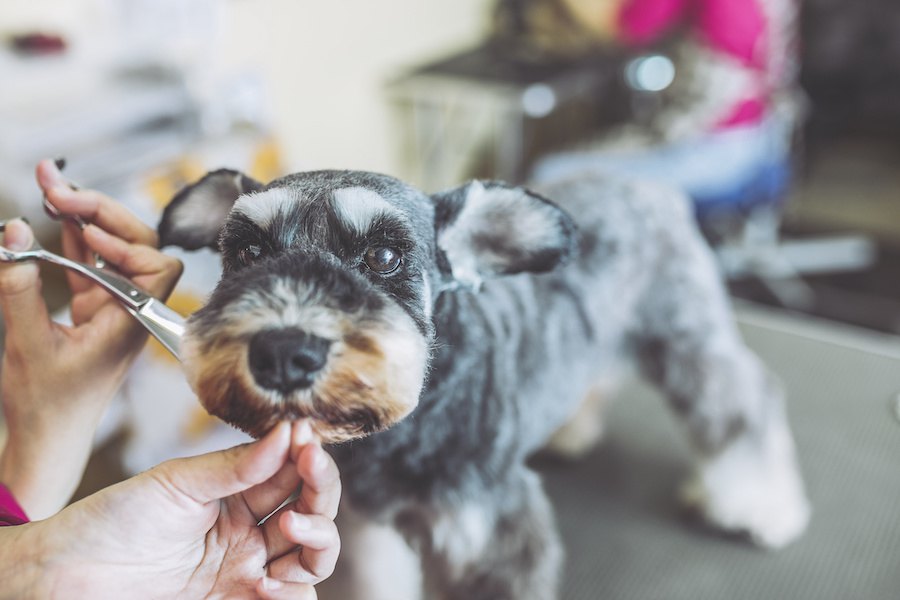
In Japan, grooming a Miniature Schnauzer is not just for maintaining their appearance but also a vital routine for their health. The breed’s dense and hard coat requires special care, and daily brushing is a common practice among Japanese pet enthusiasts. This routine helps prevent matting and dirt accumulation, ensuring the dog’s skin remains healthy.
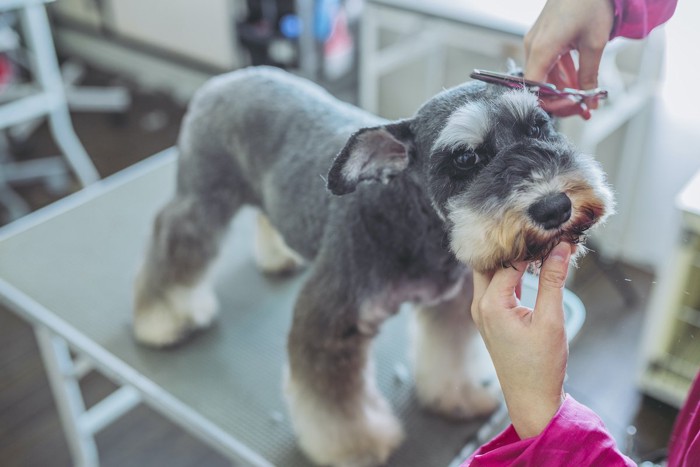
Monthly trimming is important for maintaining clear vision and protecting eye health. Regular nail clipping and ear cleaning also contribute to the pet’s comfort and well-being. In Japan, these grooming habits are also valued as a way to deepen the bond with beloved pets.
Health
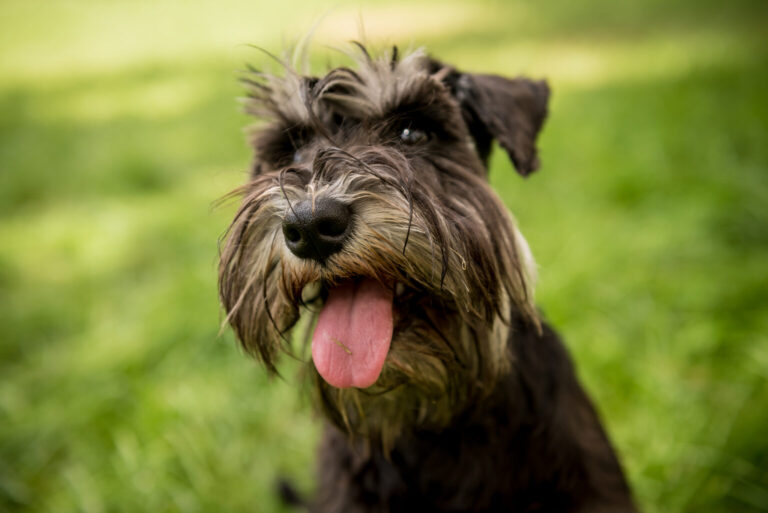
In Japan, Miniature Schnauzers are considered a relatively healthy breed, but owners are encouraged to be vigilant about certain health issues. Special attention is needed for urinary system issues and bladder stone formation, with regular health check-ups and proper diet management being recommended by Japanese owners as preventive measures.
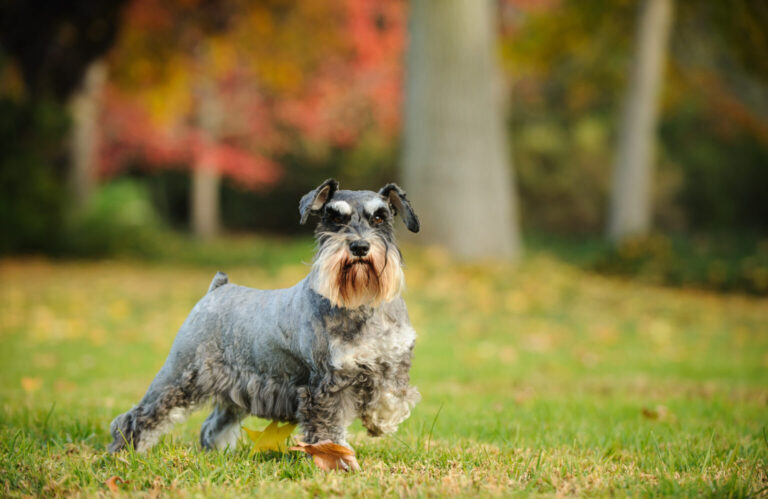
Furthermore, measures against skin diseases and allergies involve regular monitoring of the dog’s skin condition and consulting a veterinarian promptly when necessary. Early detection and treatment of eye diseases, particularly cataracts, are crucial for protecting the vision of Miniature Schnauzers.

